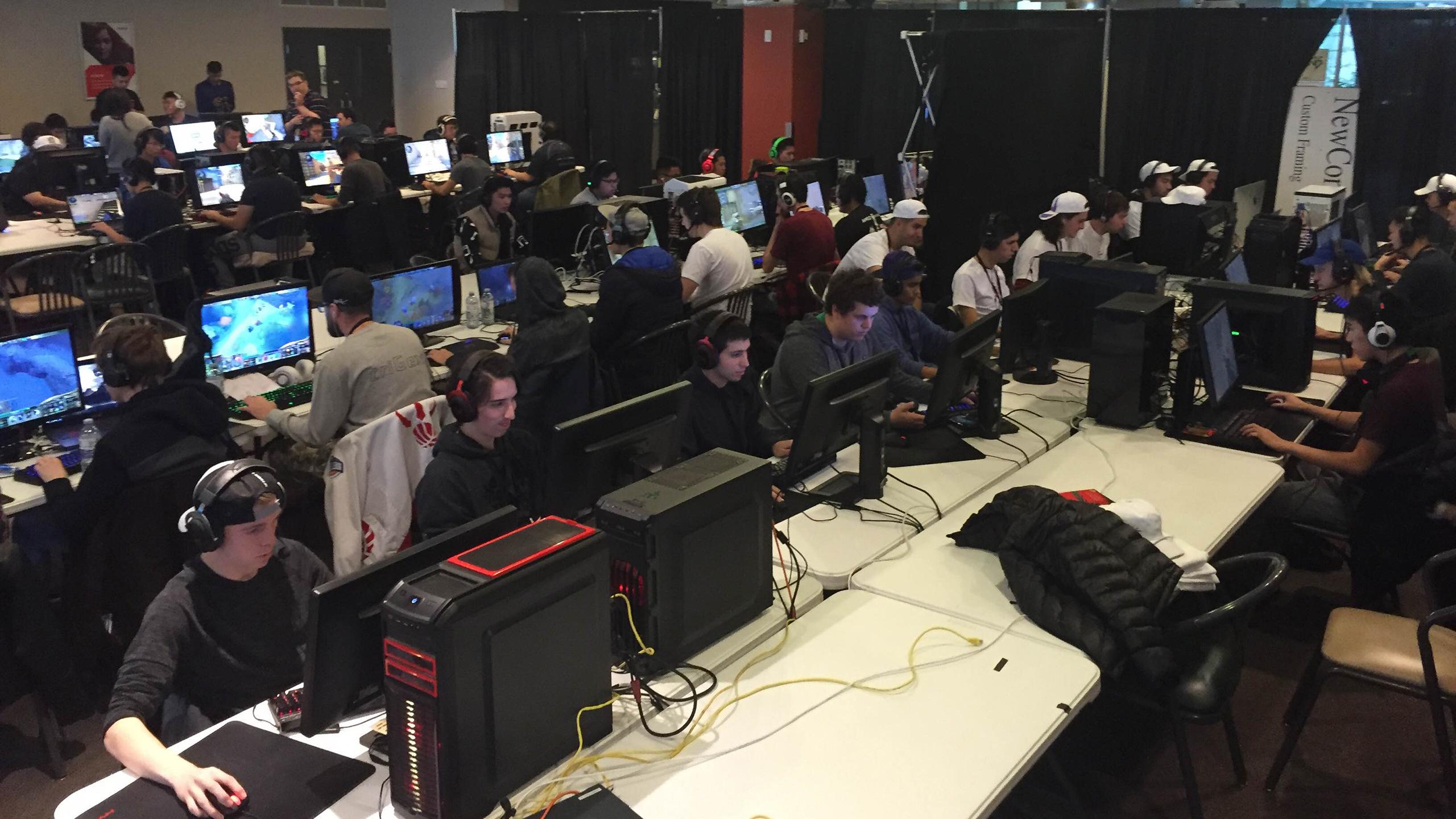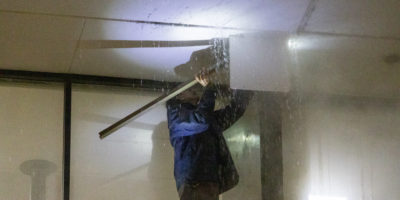By Brooks Harvey
The 2016 ExtravaLANza drew in hundreds of spectator, video-game lovers and gamers on Saturday, including Ryerson’s collegiate-level Counter-Strike: Global Offensive (CS:GO) team.
The event was hosted by AMD (Advanced Micro Devices) Radeon at their facility in Markham, ON. Radeon is a company that makes computer hardware for gamers, such as graphics cards and other parts. The event featured exhibitions of technology like computers and virtual reality, but the biggest part of the event was undoubtedly the eSports tournament. Ryerson’s CS:GO team, one of a few squads organized under Ryerson eSports, showed up to compete in the local area network (LAN) event in a seven-team elimination tournament.
The Ryerson team arrived before the doors even opened to set up their gaming rigs. It was a bring-your-own-computer event, with a $6,000 prize pool. “I’m excited and I think we stand a reasonable chance at seeing the money,” said Daniel Thai, the team’s captain and a fourth-year chemical engineering student. Thai is also the president of Gaming and Multiplayer E-sports of Ryerson (GAMER), Ryerson’s official eSports club.
Counter-Strike is a first-person shooter, which means the player sees through the eyes of their character in a first-person perspective. The goal of the game is to eliminate the enemy, while either defending or destroying objectives with a bomb.
The tournament was broken down into best-of three-game series between five-player teams, with the first team to win 15 rounds taking the game. There was even a coin toss to decide who got to pick the first map.
In the first series, Ryerson took on team Fnatic on the map Mirage, a Moroccan-style bazaar. Fnatic came out on top in both games, sweeping Ryerson and knocking them into the tournament’s lower bracket.
Ryerson’s second series saw the team face the HairBear Bunch. Game one was off to a rough start for Ryerson. Halfway through game one, HairBear was leading 8-1. Ryerson took a timeout for a huddle and ended up winning the next round. The players all wore microphone headsets and communicated as if they were a real squadron of soldiers, calling out targets and confirming kills. But HairBear then got a nine-round lead on Ryerson, needing just one more to win the game. With their backs against the wall, Ryerson rallied, winning five rounds in a row, but couldn’t pull it off, losing game one 9-16.
Ryerson opened game two with a five-round lead before HairBear came back to win consecutive games tying it up 7-7. Ryerson paused for another huddle to discuss tactics before returning to a close game. The teams traded rounds with Ryerson barely holding a lead. Hairbear overtook them in overtime, and Ryerson lost 17-19 to be eliminated from the tournament.
“We didn’t have enough time to play and practice as much as we should have going in, but I’m glad we came out,” said Thai.
“It was a good experience for the guys to play in a competitive setting like this.” he said. “Now we have our eyes on California.”
Thai is referring to Collegiate Star League, a Counter-Strike league based in California. Back in the summer, the Ryerson team flew out to compete. They finished in third place. Thai is hoping the team can return to California soon and win the league.
Photos by the author
[ngg_images source=”galleries” container_ids=”294″ display_type=”photocrati-nextgen_basic_thumbnails” override_thumbnail_settings=”0″ thumbnail_width=”100″ thumbnail_height=”75″ thumbnail_crop=”1″ images_per_page=”20″ number_of_columns=”0″ ajax_pagination=”0″ show_all_in_lightbox=”0″ use_imagebrowser_effect=”0″ show_slideshow_link=”1″ slideshow_link_text=”[Show as slideshow]” order_by=”sortorder” order_direction=”ASC” returns=”included” maximum_entity_count=”500″]












Leave a Reply